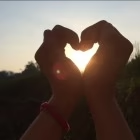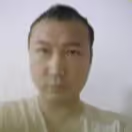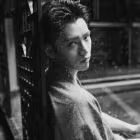为你推荐
换一换-
已完结花泽香菜/中世明日香/牧野由依/广桥凉/斋藤桃子/田村由香里/小清水亚美/浅野真澄/桑谷夏子/后藤邑子/大原崇/田坂秀树/下野纮/能登麻美子/大原沙耶香/日笠阳子/清水香里/金田朋子/伊藤静/中田让治/
-
HD约翰尼·德普/弗莱迪·海默/海伦娜·伯翰·卡特/克里斯托弗·李/诺亚·泰勒/大卫·凯利/米西·派勒/詹姆斯·福克斯/安娜索菲亚·罗伯/迪普·罗伊/亚当·戈德利/弗兰西斯卡·托格内尔/茱莉亚·温特/乔丹·弗雷/菲利普·韦格拉茨/
-
已完结3.0 祝延平/王景秋/牟霞/张茜/于治杰/王炳刚/尚丽华/于承惠/
-
HD迈克尔·墨菲/奈杰尔·达文波特/
-
HD李勇勇/周予援/邱世穗/聂雅亮/谭非翎/王艾冰/刘晓丹/孟谦/胡思庆/李晓佳/刘如鹏/张建钢/王琪/
-
更新至第49集7.0 朱亚文/万茜/张萌/袁文康/张子健/薛皓文/范帅琦/龙政璇/贾本初/蒋方婷/
-
已完结4.0 周也/王星越/彭楚粤/张逸杰/赵晴/徐帆/李昀锐/陈紫函/孙怡/彭小苒/杨旭文/张铭恩/王迅/钱洁/赵嘉敏/张垒/艾米/孙傲/刘敏/徐舒莹/郭东海/向夏/
-
HD威尔·法瑞尔/凯文·哈特/爱丽森·布里/艾丽·简/格雷格·T·尼尔森/保罗·本-维克托/丹·巴克达尔/玛丽安娜·宝拉·韦森特/T.I./瓦内萨·阿玛雅/萨曼莎·博利厄/约翰·梅耶/苔伦特瑞尔/
-
HD古川慎///石川界人///浜添伸也///上田燿司/
-
HD嘉莲·维雅/班哲明·比欧雷/卢卡斯·英格兰德/利蒂希亚·多施/帕斯卡·艾比约/埃弗琳·布尔/
-
HD张植绿/张冰倩/张天野/王侃伟/刘博群/任逍遥/
-
更新至43集安贞焕/李民浩/金大浩/
-
HD桑德拉·布洛克/迈克尔·凯恩/本杰明·布拉特/坎迪斯·伯根/威廉·夏特纳/埃涅·赫德森/希瑟·伯恩斯/梅丽莎·德索萨/斯蒂夫·蒙罗埃/温蒂·拉奎尔·罗宾逊/肯·托马斯/加布里埃尔·福尔斯/
-
HD罗宾·威廉姆斯/比利·克里斯托/茱莉亚·路易斯-德瑞弗斯/娜塔莎·金斯基/查理·霍夫赫梅尔/布鲁斯·格林伍德/丹尼斯·伯克利/Haylie Johnson/查尔斯·罗基特/帕蒂·达班维尔/杰瑞德·哈里斯/路易斯·隆巴迪/马克·麦克格拉斯/Craig Bullock/Charles Stan Frazier/
-
已完结6.0 陈赫/王传君/姜妍/张子萱/赵圆瑗/佟磊/张艺骞/陈国坤/杨皓宇/上官瞳/张岩/金亮/闾汉彪/刘惠/那威/李健仁/张瑞涵/曹璐/海陆/杨若翎/刘萌萌/高蓓蓓/谭琍敏/雷佳/路晨/沈晓海/杜玉明/杨大鹏/周浩东/王俪穅/马书良/秦焰/康宁/马达/冯晓江/提爱民/王敏/张志伟/宋永恒/潘一飞/尚言生/肜耀忠/王菲洋/闵春晓/王天龙/高鸿涛/皮逸嘉/
评论
共 810 条评论-
 33 49.235.7.76我觉得到没有那么糟糕,之前画面还是很美的,特别是云彩的美。
33 49.235.7.76我觉得到没有那么糟糕,之前画面还是很美的,特别是云彩的美。 -
 Lily Song. 250.176.21.136喜欢它的人很喜欢 不喜欢的人对它诟病很多能做到这么让人爱恨分明的 也算是赢家了吧其实只要是能静下心来 不难发现它的动人之处陪伴守护 知恩图报 本来就是细小温暖的事 怎么会带着这种冷漠的态度去计较这些呢我想要点感动 想要点春风都有了 都给了美好的事物 用心去看 不难发现
Lily Song. 250.176.21.136喜欢它的人很喜欢 不喜欢的人对它诟病很多能做到这么让人爱恨分明的 也算是赢家了吧其实只要是能静下心来 不难发现它的动人之处陪伴守护 知恩图报 本来就是细小温暖的事 怎么会带着这种冷漠的态度去计较这些呢我想要点感动 想要点春风都有了 都给了美好的事物 用心去看 不难发现 -
 哑城 238.75.46.153?第一次写文字评?太难看了卖酒的小哥很可爱 加一星
哑城 238.75.46.153?第一次写文字评?太难看了卖酒的小哥很可爱 加一星 -
 万万没想到 107.108.23.24画面有多美,故事就有多糟糕。一开口就满满的尴尬。
万万没想到 107.108.23.24画面有多美,故事就有多糟糕。一开口就满满的尴尬。 -
 纵横大爺 249.243.93.471.用力过猛;2.湫上能通天下能煮饭,从头到尾对椿不离不弃堪称忠犬典范,居家旅行必备老公,超喜欢我湫;3.金士杰配音!金士杰配音!金士杰配音!4.椿用一年就把鲲养得那么大,养殖技术值得大力推广;5.最后,我国居然有这么多青少年没有乳头和生殖器官,好惨哦。
纵横大爺 249.243.93.471.用力过猛;2.湫上能通天下能煮饭,从头到尾对椿不离不弃堪称忠犬典范,居家旅行必备老公,超喜欢我湫;3.金士杰配音!金士杰配音!金士杰配音!4.椿用一年就把鲲养得那么大,养殖技术值得大力推广;5.最后,我国居然有这么多青少年没有乳头和生殖器官,好惨哦。
